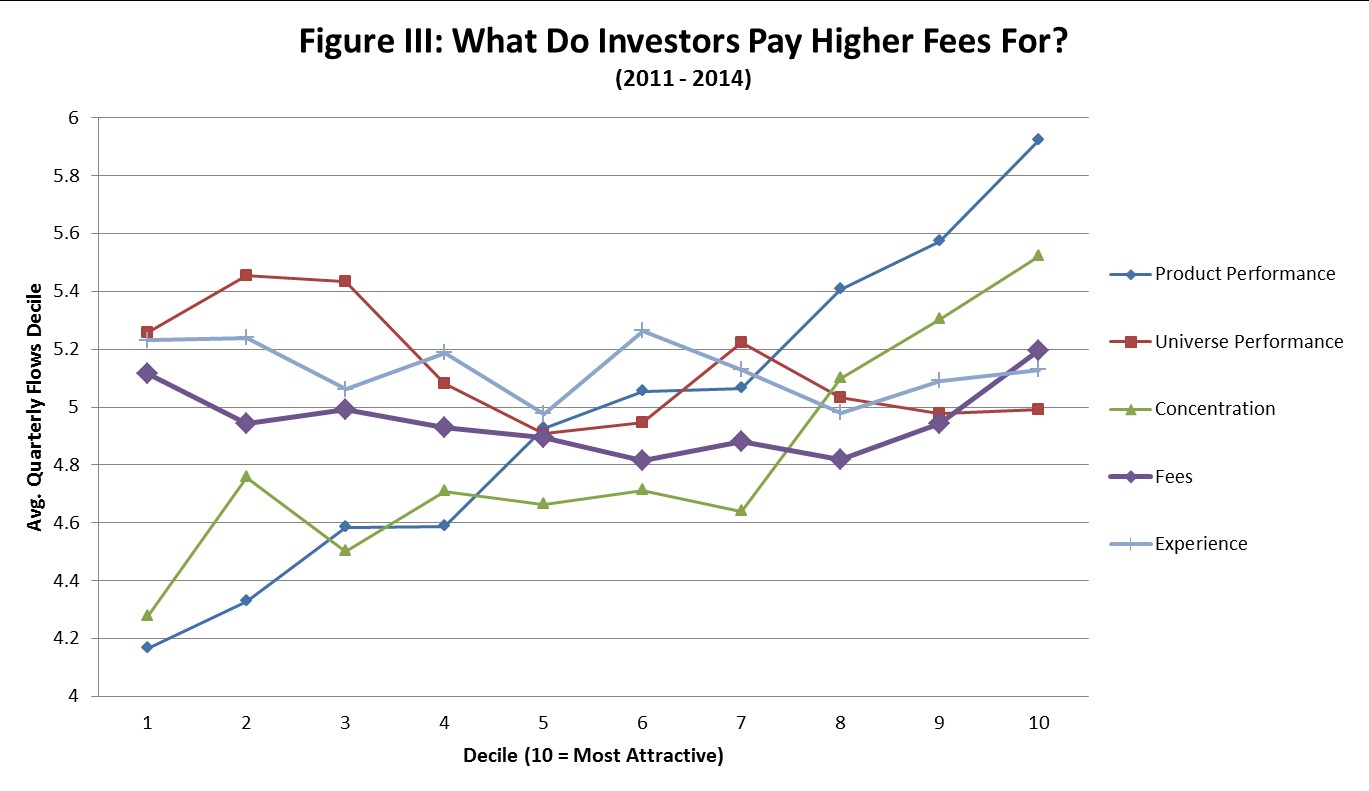Cheaper isn’t necessarily better when it comes to management fees, and institutional investors are willing to pay more—but only for true value, according to eVestment.
The data firm found the lowest fee products weren’t the most attractive to investors, and were on average only 1.6% more likely to bring assets.
“Fee competitiveness doesn’t always top the list of criteria for consultants and allocators.” —eVestmentIn fact, asset owners didn’t shy away from higher fees, with more than half (57%) of assets won in 2014 charging fees in the top 50%, the report said.
“While they have a direct impact on both investor returns and manager revenue, [the data] tells us fee competitiveness doesn’t always top the list of criteria for consultants and allocators,” the report said.
Instead, investors were most willing to pay higher fees for peer-topping past performance, eVestment said.
According to the data, products with top-decile returns over a three-year period were 42% more likely to win mandates than their bottom-decile counterparts.
Asset owners are likely to believe in the managers and their “investment acumen” behind the strategy because of strong past performance, the report said. In addition, they are less likely to view higher fees as a negative “when they are a slice of a larger return.”
Investors also were likely to pay more for concentrated portfolios, reflecting their willingness to back true active management, rather than for exposures that could be achieved through passive investing. eVestment found these high-fee concentrated products were 29% more likely to win mandates than their low-fee peers.
However, the more inexpensive products did attract investors in times of difficult market conditions, the report said.
Cheaper products during times of bottom-decile market performance were 14% more successful in attracting mandates than high-fee products, the data revealed. However, in stronger market environments, these low-fee products were only 2.4% more successful in gaining assets.
“As investors’ gross returns get squeezed, fees become more noticeable and lowering them is an action that can increase net returns,” the report said.
Other factors, including average portfolio manager experience, product age, and firm size had negligible impact on the ability for managers to charge higher fees.
 Source: eVestment
Source: eVestment
Related Content: Why Your (Smaller) HF Manager Might Not Be Worth the Fees; New Jersey Pensions to Scrutinize Fees; NYC Comptroller Vows to Shake Up Wall St ‘Status Quo’
